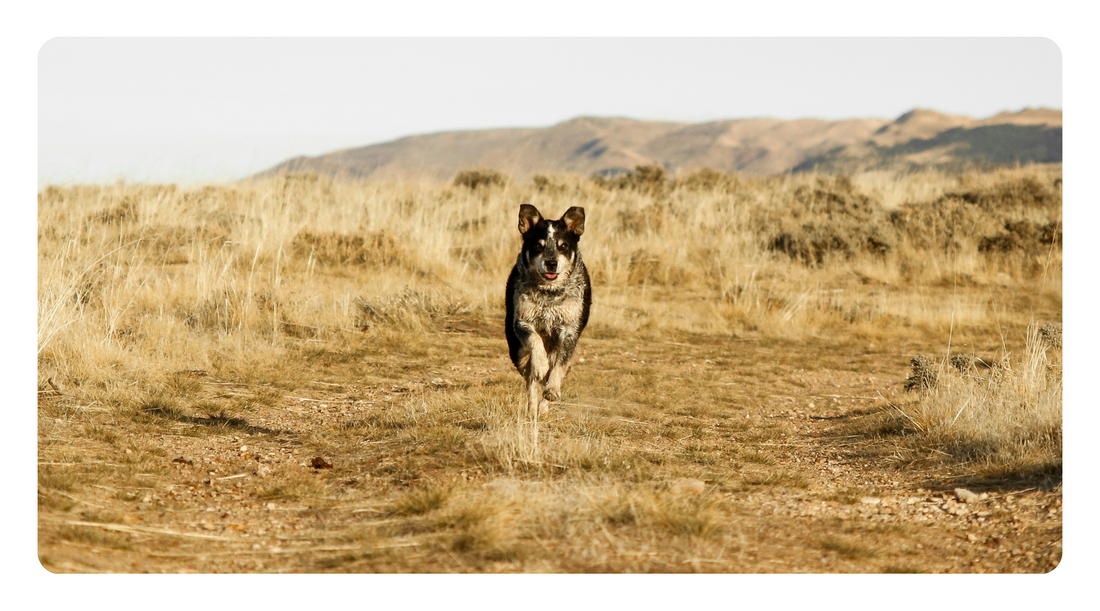Arthritis is one of the most common chronic conditions in dogs, especially seniors, but it’s not just limited to old age. Dogs of all breeds and life stages can develop joint pain due to a variety of underlying causes. Whether your dog is limping, stiff after rest, reluctant to climb stairs, or simply not as playful as they used to be, arthritis could be the reason. And if you’ve tried prescription medications and aren’t seeing the results you hoped for, or are concerned about long-term side effects, you’re not alone.
The good news? There are powerful, natural tools to help relieve pain, reduce inflammation, and restore mobility, without the downsides of conventional drugs. In fact, a well-rounded, holistic plan often leads to better outcomes because it addresses the root causes of joint degeneration, not just the symptoms.
In this comprehensive guide, we’ll explore how to manage arthritis in dogs naturally, using food, supplements, herbs, therapies, and even regenerative medicine that work with the body, not against it.
What Causes Arthritis in Dogs?
Arthritis in dogs refers to inflammation and deterioration of the joints. It most often involves osteoarthritis (also called degenerative joint disease), which is the gradual breakdown of cartilage over time. This wear-and-tear leads to pain, swelling, stiffness, and decreased mobility.
Common contributing factors include:
-
Age-related joint degeneration
-
Developmental issues (hip/elbow dysplasia, luxating patella)
-
Previous injuries or orthopedic surgeries
-
Overweight or obesity
-
Nutritional deficiencies or poor-quality diets
-
Chronic inflammation and oxidative damage
-
High-impact activities or repetitive stress
While arthritis is a progressive condition, early intervention can dramatically slow its advancement and improve your dog’s quality of life.
1. Feed an Anti-Inflammatory Diet
The foundation of any natural arthritis protocol is reducing inflammation at its source, starting with what’s in your dog’s bowl. Highly processed kibble is often loaded with starches, inflammatory fats, and synthetic additives that can worsen joint pain.
A fresh, whole-food diet is rich in bioavailable nutrients and natural anti-inflammatories. Some top nutritional strategies include:
-
Switching to raw or gently cooked meals using pasture-raised or grass-fed meats
-
Incorporating oily fish like sardines, mackerel, or anchovies for omega-3s
-
Adding anti-inflammatory herbs like turmeric, ginger, and nettle
-
Using low-glycemic vegetables such as leafy greens, broccoli, zucchini, and squash
You’ll also want to avoid common pro-inflammatory ingredients, such as:
-
Corn, wheat, soy, and high-carb fillers
-
Processed vegetable oils (canola, soybean, sunflower)
-
Synthetic preservatives and flavorings
Every meal is an opportunity to either fuel inflammation or reduce it. A species-appropriate diet sets the stage for healing.
2. Use Joint-Supportive Supplements
Certain nutrients have been extensively studied for their ability to support cartilage repair, lubricate joints, and ease pain. Adding these natural supplements can significantly improve mobility and comfort:
-
Glucosamine & Chondroitin Sulfate: Help maintain cartilage and joint fluid integrity
-
MSM (Methylsulfonylmethane): A sulfur compound with potent anti-inflammatory and pain-relieving effects
-
Green-Lipped Mussel: A whole-food source of glycosaminoglycans, omega-3s, and marine-based antioxidants
-
Collagen and Gelatin: Provide the amino acids needed for connective tissue regeneration
-
Boswellia Serrata: An Ayurvedic herb shown to reduce swelling and pain in arthritic joints
-
Hyaluronic Acid: Helps retain joint moisture and improves cushioning
The best results often come from combining these ingredients into a synergistic formula. Look for products that are clean, free from synthetic fillers, and formulated specifically for dogs.
3. Support and Maintain a Healthy Weight
Even a few extra pounds can put significant strain on your dog’s joints, especially hips, knees, and elbows. Overweight dogs are far more likely to develop arthritis early and suffer from faster joint degradation.
Steps to support optimal weight include:
-
Feeding a high-protein, low-starch diet with measured portions
-
Using treat alternatives like freeze-dried organs or fresh vegetables
-
Maintaining regular, low-impact exercise like walking, swimming, or nose work
Maintaining a lean body condition is one of the most effective ways to slow the progression of arthritis and reduce daily pain.
4. Add Targeted Herbal Remedies
Nature offers a wide range of herbs that can reduce inflammation, improve circulation, and ease discomfort, without the risks of long-term NSAID use.
Top herbal allies for arthritis include:
-
Turmeric (Curcumin): Blocks inflammatory pathways (COX-2) and provides antioxidant protection
-
Devil’s Claw: Traditionally used for musculoskeletal pain and stiffness
-
Yucca Root: Rich in saponins that may help reduce swelling
-
Ginger: Warms the joints, stimulates circulation, and calms inflammation
-
Meadowsweet or willow bark: Mild natural pain relievers (consult your holistic vet first)
Herbs work best when used consistently and sourced from reputable, dog-safe formulations. Always start with low doses and monitor your dog’s response.
5. Explore Alternative Therapies That Heal
Complementary therapies can greatly enhance your dog’s comfort and mobility, especially when combined with good nutrition and supplementation. Many holistic veterinarians now offer the following modalities:
-
Acupuncture: Helps relieve pain, reduce inflammation, and restore energy flow
-
Chiropractic Adjustments: Realign the spine and joints to relieve stress on affected areas
-
Massage Therapy: Loosens tight muscles, improves range of motion, and boosts circulation
-
Cold Laser Therapy (Photobiomodulation): Stimulates cellular repair, reduces inflammation, and accelerates healing
-
Hydrotherapy: Offers low-impact muscle building and joint support through water-based movement
These therapies not only relieve symptoms but also support tissue regeneration and overall vitality.
6. Consider Regenerative Medicine
Regenerative therapies are becoming increasingly popular for managing arthritis and joint issues in dogs. These therapies use the body’s own healing potential to rebuild damaged tissue and reduce inflammation at the source.
Options include:
-
Platelet-Rich Plasma (PRP): Uses concentrated platelets from your dog’s blood to stimulate tissue repair and reduce pain
-
Stem Cell Therapy: Harvests stem cells from your dog’s fat tissue and reinjects them into arthritic joints to promote regeneration
-
Prolotherapy: Involves injecting natural irritants into damaged tissues to encourage the body’s healing response
While these therapies may require a veterinary specialist, they can provide dramatic improvements for dogs with moderate to severe arthritis, and are worth considering as part of a long-term, integrative plan.
Final Thoughts
Arthritis doesn’t have to mean a life of discomfort, inactivity, or reliance on medication. When you address joint disease from a root-cause perspective, by improving diet, supporting the body with targeted supplements and herbs, encouraging healthy movement, using supportive therapies, and exploring regenerative options, you give your dog the best chance at aging comfortably and actively.
It’s never too early (or too late) to start a natural joint health plan.
At The Organic Dog Shop, we’re here to support you every step of the way. Our arthritis support collection features trusted, clean-label joint formulas, herbal blends, and functional foods that help dogs move easier, feel better, and thrive longer. Explore our shop today and give your dog the natural relief they deserve.

